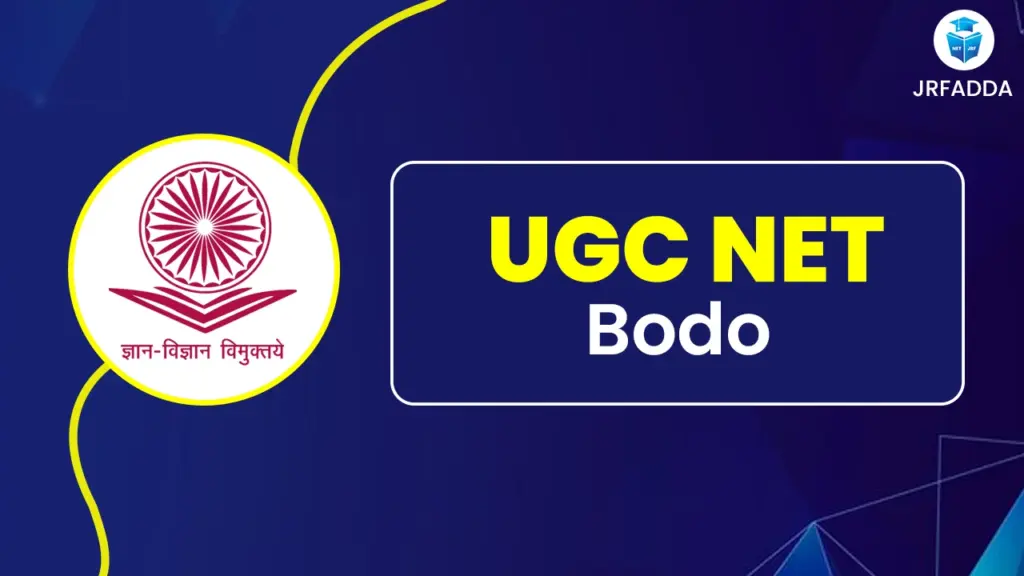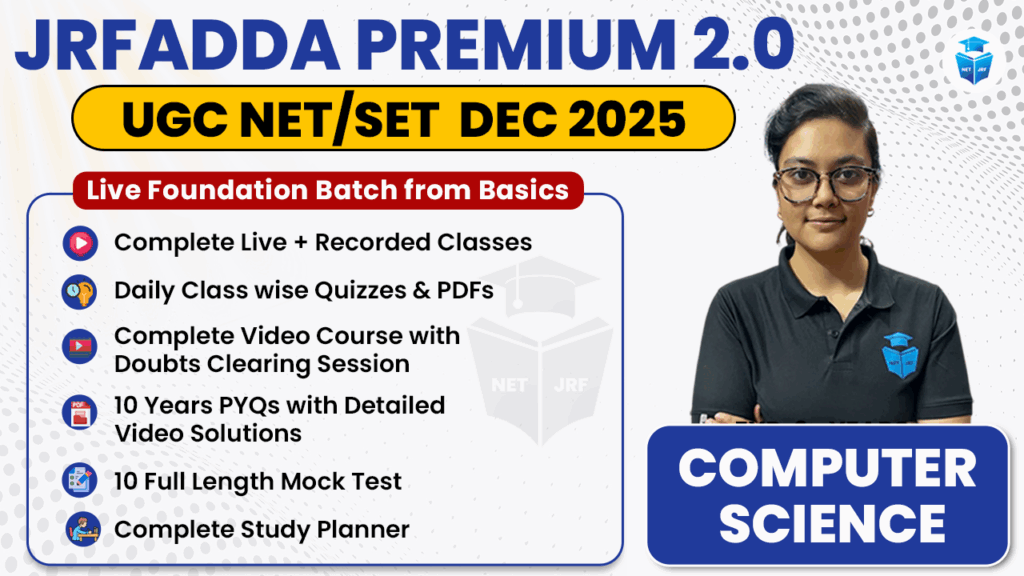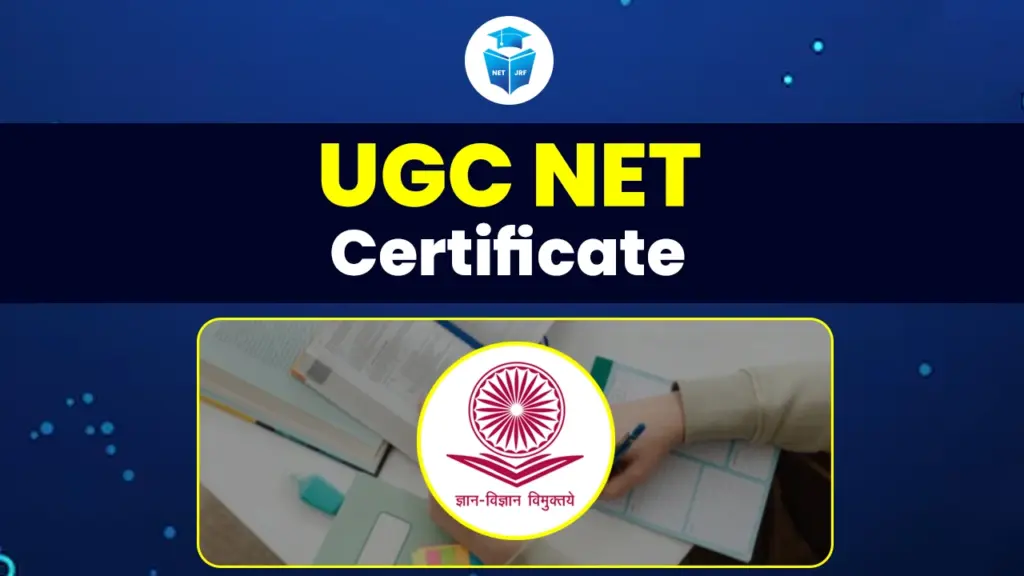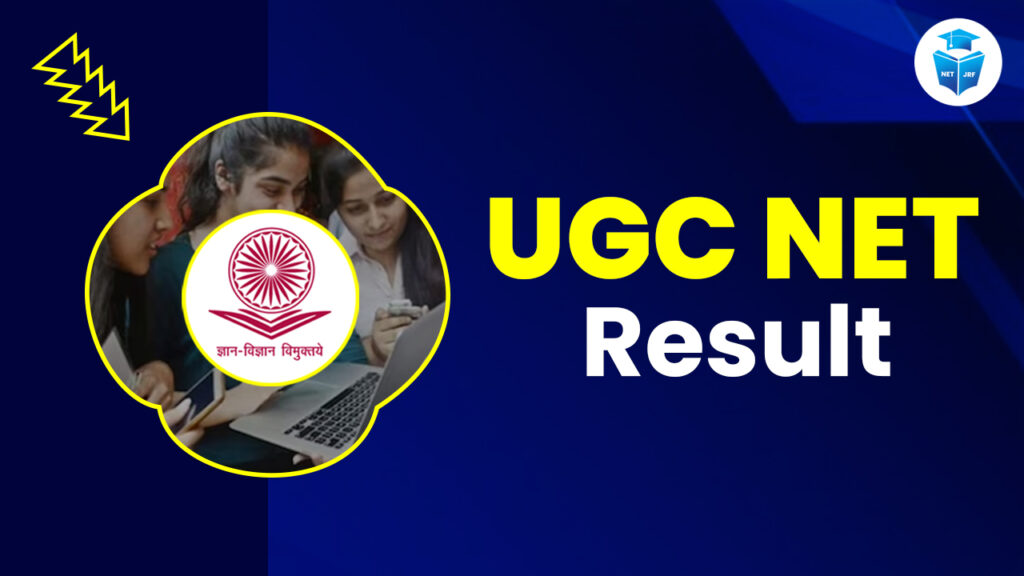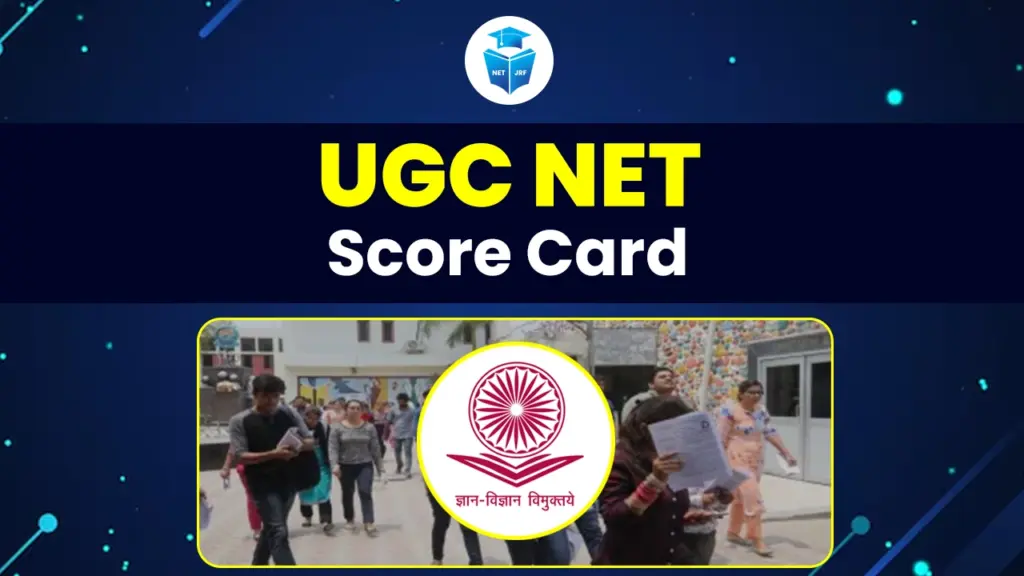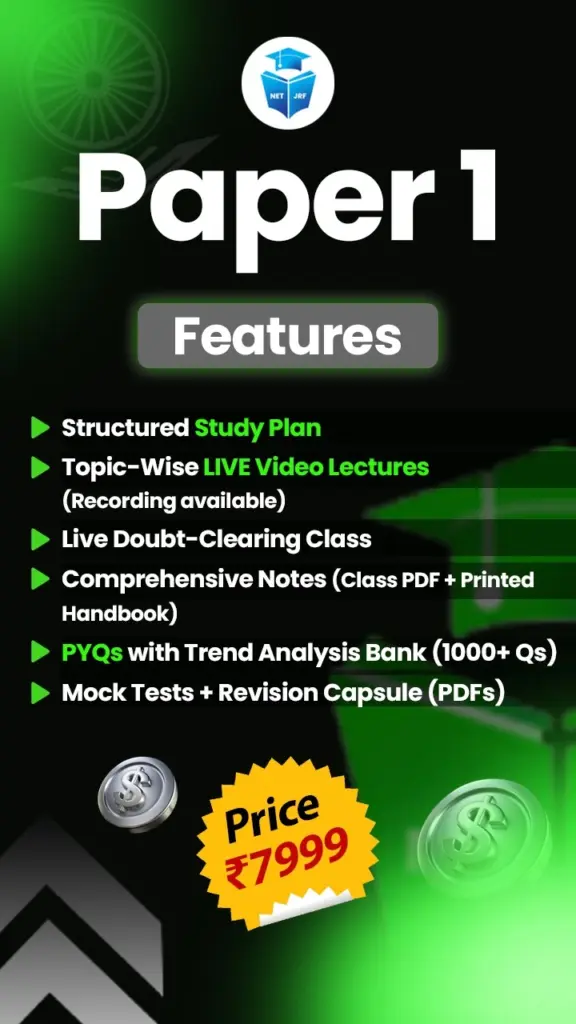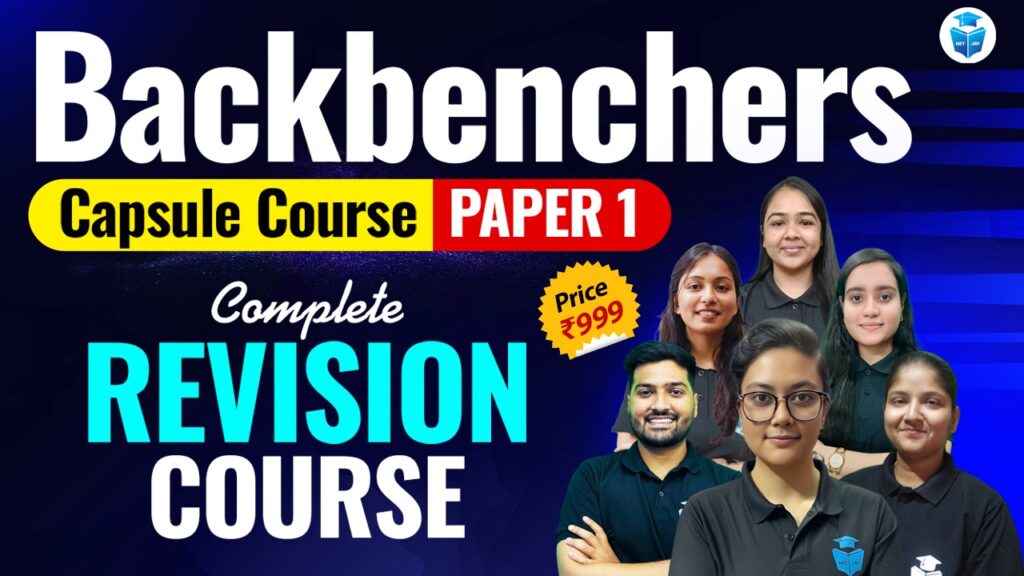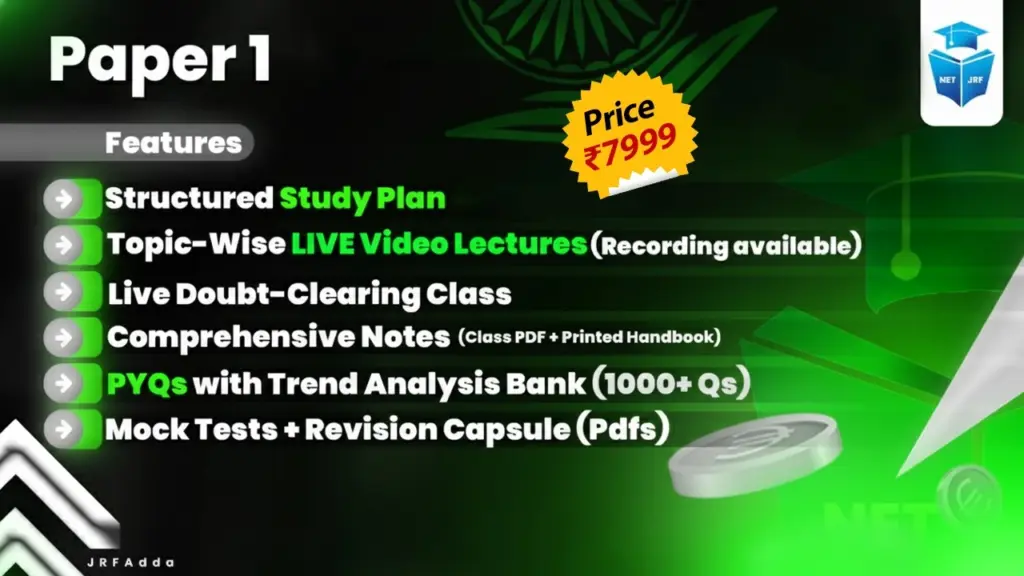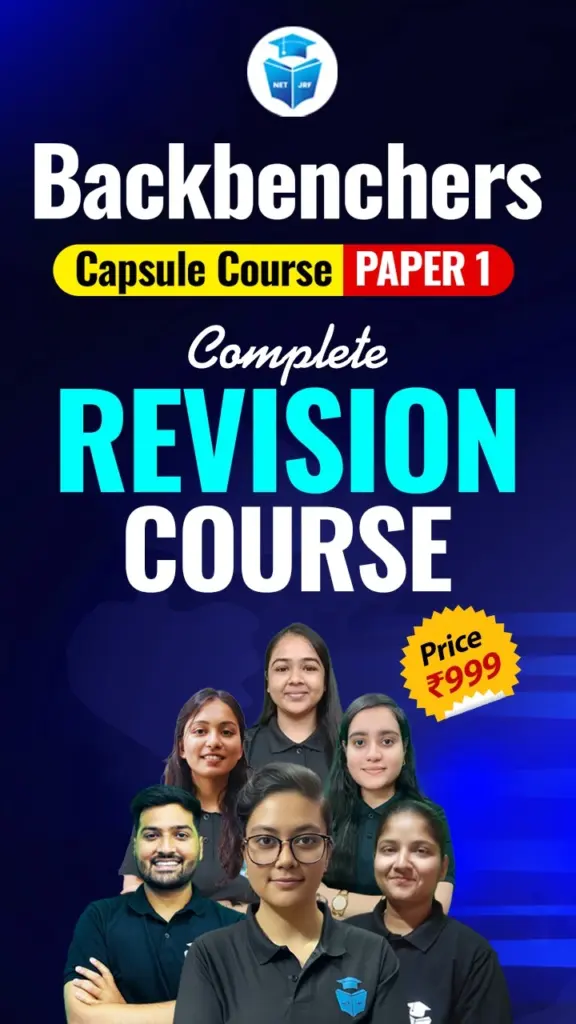UGC NET Bodo 2025 is a very competitive national-level exam conducted by the National Testing Agency on 2 January 2026 in First Shift to identify the eligibility of candidates for appointment as Assistant Professorship and Junior Research Fellowship (JRF) in Bodo language. UGC NET Bodo 2025 is a gateway for students who want to pursue a career as a professor or research scholar in Bodo language and literature in Indian colleges and universities. If you have an interest in the Bodo language and culture, this guide will help you understand the eligibility criteria, test pattern, syllabus, and preparation strategy of the UGC NET Bodo 2025 test.
Also Read: UGC NET Exam Date 2026
What is UGC NET Bodo 2026?
The aim of the UGC NET Bodo 2026 is to examine the knowledge of the candidates in allied cultural studies, Bodo language, and Bodo literature. The two major aims of this bi-annual activity are to hire appropriate candidates for the posts of Assistant Professors in Indian universities and colleges and award Junior Research Fellowships for the purpose of further research work.
Also Read: UGC NET Exam 2026
UGC NET Bodo Eligibility Criteria 2026
Candidates must meet the eligibility requirements established by the National Testing Agency (NTA) in order to apply for UGC NET Bodo 2025. These requirements are mostly based on age limits (particularly for JRF), educational qualifications, and other important rules. Here’s a complete breakdown:
UGC NET Educational Qualification 2026
- A Master’s degree or its equivalent in Bodo or a closely related field (like Bodo literature or language studies) from a recognized university or institution is required of candidates.
Minimum Marks Required
- Candidates in the General, Unreserved, and EWS categories must receive at least 55% of the possible points (without rounding off).
- Candidates who are OBC (Non-Creamy Layer), SC, ST, PwD, or third gender must receive at least 50% of the possible points.
- Students in their final year of a master’s program may also apply. Before the results are announced, they must finish their degree and fulfill the minimum score requirements.
UGC NET Age Limit 2026
Junior Research Fellowship (JRF) Age Limit:
- As of the first day of the month the exam is administered (probably June or December 2025), the maximum age is thirty years old.
For Assistant Professorship:
- No upper age limit for applying for Assistant Professor positions through UGC NET.
UGC NET Age Relaxation
- OBC (NCL): : 3 years
- SC/ST/PwD/Third Gender: 5 years
- Women candidates: 5 years
- Candidates with research experience or armed forces background may get additional relaxation (as per UGC norms).
Also Read: UGC NET Eligibility Criteria 2026
UGC NET Bodo Exam Pattern 2025
The National Testing Agency (NTA) administers the UGC NET Bodo 2025 exam using a Computer-Based Test (CBT) format. It consists of two papers: Paper I, which is common to all subjects, and Paper II, which is subject-specific (i.e., Bodo). Both papers are completed in one sitting without any breaks.
| Paper | Subject | No. of Questions | Marks | Duration |
| I | General Paper on Teaching & Research Aptitude | 50 | 100 | 3 hours (combined) |
| II | Bodo (Subject-specific) | 100 | 200 | |
| Total | 150 | 300 | 180 minutes |
Also Read: UGC NET Exam Pattern 2025
UGC NET Bodo Marking Scheme 2025
Candidates preparing for UGC NET Bodo 2025 must understand the marking scheme. To ensure accuracy and fairness in the evaluation process, the National Testing Agency (NTA) uses a clear and uniform marking system for both Paper I and Paper II. The marking scheme’s detailed breakdown is provided below:
| Paper | Number of Questions | Marks per Question | Total Marks |
| Paper I | 50 | 2 | 100 |
| Paper II | 100 | 2 | 200 |
| Total | 150 | 300 |
UGC NET Bodo Minimum Qualifying Marks 2025
In the UGC NET Bodo 2025 exam, candidates must receive the minimum qualifying marks set by the National Testing Agency (NTA) in order to be eligible for an Assistant Professor or Junior Research Fellowship (JRF). These minimum marks vary depending on the category of the candidate.
| Category | Minimum Marks in Paper I + II (Combined) |
| General / EWS | 40% (120 out of 300) |
| OBC (Non-Creamy Layer) | 35% (105 out of 300) |
| SC / ST | 35% (105 out of 300) |
| PwD / Third Gender | 35% (105 out of 300) |
UGC NET Bodo Syllabus 2026
The purpose of the UGC NET Bodo 2026 syllabus is to evaluate a candidate’s comprehensive knowledge and comprehension of the Bodo language, literature, culture, and historical development. It discusses a variety of subjects that represent the Bodo language’s linguistic, literary, and sociocultural aspects.
Also Read: UGC NET Syllabus 2026
UGC NET Bodo Syllabus 2025 Unit-Wise
According to the University Grants Commission’s (UGC) guidelines, the UGC NET Bodo syllabus is divided into ten units. To ace the exam, candidates need to thoroughly study every unit.
| Unit No. | Title | Key Topics Covered |
| Unit I | History of Bodo Language | Origin, development, classification, dialects, phonology, morphology, syntax |
| Unit II | History of Bodo Literature | Oral traditions, evolution of genres, missionary contribution, modern literary trends |
| Unit III | Literary Criticism and Theory | Indian & Western criticism, Rasa, Dhvani, Structuralism, Feminism, Post-Colonialism |
| Unit IV | Poetry | Ancient to modern poetry, major poets, trends, themes, styles |
| Unit V | Drama | Traditional & modern drama, elements, major dramatists and plays |
| Unit VI | Fiction | Novels and short stories, narrative techniques, themes, character development |
| Unit VII | Prose and Essays | Non-fiction prose, essays, autobiographies, memoirs, stylistic aspects |
| Unit VIII | Translation | Theory and practice of translation, major translated works, cultural exchange |
| Unit IX | Culture and Folklore | Bodo festivals, customs, folklore genres (myths, tales, proverbs), socio-cultural value |
| Unit X | Language, Script, and Grammar | Grammar rules, sentence structure, script evolution, orthographic reforms |
UGC NET Bodo 2026 Syllabus PDF Download
The official syllabus for the UGC NET Bodo 2026 exam is now easily available in PDF format for candidates to use in their methodical study. Download from the below link:
| Language | Download Link |
| Bodo (Hindi) | यूजीसी नेट बोडो सिलेबस 2026 डाउनलोड करें |
Explore UGC NET Bodo 2025 exam of december session held on 2 January 2026 (1st Shift). Check detailed syllabus, exam pattern, eligibility, age limit, preparation tips, and career opportunities in Bodo language and literature for JRF and Assistant Professor.
Download UGC NET Full Official Syllabus PDF
UGC NET Bodo Question Paper 2025
For candidates hoping to pass the exam with a high score, the UGC NET Bodo Question Paper 2024 is an essential resource. It provides a real-time understanding of the format, level of difficulty, question types, and key subjects that will be covered in the actual exam. Candidates can assess their level of preparation and understand the exam’s common themes by looking over the 2024 question paper. It also helps in determining candidates areas of strength and improvement.
| Exam Name | Download PDF |
| UGC NET Bodo 2025 December | Download PDF (available soon) |
| UGC NET Bodo 2025 June | Download PDF (available soon) |
Also Read: UGC NET Previous Question Papers, Last 5 Years
UGC NET Bodo Previous Year Question Papers
Candidates can better understand the exam’s structure, common topics, and level of difficulty by using these papers. Before taking the exam, you can improve your confidence, accuracy, and speed of problem-solving by practicing previous papers.
| Exam Name | Year | Download PDF |
| UGC NET Bodo | 2024 | Download Link |
| UGC NET Bodo | 2023 | Download Link |
| UGC NET Bodo | 2022 | Download Link |
| UGC NET Bodo | 2021 | Download Link |
| UGC NET Bodo | 2020 | Download Link |
| UGC NET Bodo | 2018 | Download Link |
Also Read: UGC NET Previous Year Question Papers PDF
Career Scope After Qualifying UGC NET Bodo
Candidates who specialize in the Bodo language and literature can pursue a variety of academic, research, and professional opportunities after passing the UGC NET Bodo exam. The need for Bodo language specialists in educational institutions, cultural organizations, and research bodies continues to grow as regional and indigenous languages have received more attention. Below is a breakdown of the various career paths available:
| Career Path | Details |
| Assistant Professor | Eligible for teaching positions in colleges and universities
Career progression to Associate Professor and Professor roles |
| Junior Research Fellowship (JRF) | Ph.D. in Bodo language and related fields
Monthly stipend ₹31,000–₹35,000 Opportunities at IGNCA, CIIL, NEHU |
| Ph.D. & Post-Doctoral Research | UGC NET often mandatory for Ph.D. admission
Work on Bodo language preservation, literary and linguistic research |
| Government Jobs & Cultural Institutions | Jobs in Sahitya Akademi, NEZCC, Bodo Sahitya Sabha
Opportunities in tribal research, translation departments, language development boards |
| Publishing, Translation & Media | Work as Bodo content writers, editors, translators
Opportunities in radio, TV, newspapers, government publications, and digital media |
| Competitive Exams & Consulting | Boosts chances in UPSC and State PSCs (Bodo optional)
Educational consultancy and academic content development |
| Promotion of Indigenous Languages | Contributions to NEP 2020, curriculum building, and community education for promoting Bodo heritage and linguistic diversity |
Also Read: Career Options After UGC NET June 2025
UGC NET Bodo Preparation Tips 2026
A well-organized approach, in-depth knowledge of Bodo literature and language, and regular practice are necessary for preparing for the UGC NET Bodo 2026 exam. Using the proper preparation strategy can greatly increase your chances of qualifying as the competition becomes higher every year. Here are some tips from experts to help you prepare for the UGC NET Bodo:
- Understand the syllabus and format of test: Understand Papers 1 (Aptitude) and 2 (Bodo). Concentrate on the following important areas: culture, grammar, and literature.
- Plan Your Study Time: Study for Bodo for two to three hours every day, and for Paper 1 for one hour. Set aside one day each week for mock exams and revision.
- Make use of common resources: Consult the NTA syllabus, academic texts, and university notes. Paper 1 is aided by NCERT and UGC guidelines.
- Practice Question Papers: Answer papers from the previous five to ten years. Take practice exams, evaluate your performance, and strengthen your weak areas.
- Make Brief Notes: Take brief notes on important subjects and revise them using mind maps.
- Pay attention to concepts rather than memorization; learn about authors, themes, and literary eras.
- Join Study Groups: Talk about difficult subjects, share notes, or sign up for a mentoring or coaching program.
- Revisions should be made on a weekly and monthly basis to ensure retention.
Also Read: UGC NET Preparation Tips 2026
Conclusion
UGC NET Bodo 2026 is the gateway to a successful academic and research career in Bodo language and literature, not just an eligibility exam. With a clear idea of the eligibility criteria, syllabus in detail, exam pattern, and preparation strategy, the candidates can move forward boldly towards the test. With reforms in education like NEP 2020 encouraging the study of indigenous languages, passing UGC NET in Bodo not only nurtures traditional academic roles but also offers diversified roles in government agencies, cultural preservation, translation, and digital media. Consistent preparation, focus, and interest in the Bodo language are the success mantras.
UGC NET Bodo 2025 FAQs
What are the UGC NET Bodo minimum qualifying marks?
Candidates from the general/EWS category must receive at least 40% (120/300) in both papers, while candidates from the reserved category must receive 35% (105/300).
How can I get the PDF version of the UGC NET Bodo syllabus?
The UGC or NTA websites offer the official syllabus for download. You can also download from the links provided in this article.
Can I apply to UGC NET Bodo for both the JRF and the Assistant Professor positions at the same time?
Yes, candidates may submit applications for both. You will be given consideration for a JRF and an assistant professorship if you meet the requirements for age and qualifications.
What are the career opportunities after qualifying UGC NET Bodo?
Careers in academia (as an assistant professor), research (JRF, Ph.D.), translation, publishing, cultural institutions, media, and government positions promoting indigenous languages are all options.
What career options are available for UGC NET Bodo qualification?
Careers in academia (as an assistant professor), research (JRF, Ph.D.), translation, publishing, cultural institutions, media, and government positions promoting indigenous languages are all options.
How should I prepare for UGC NET Bodo 2025?
Study the syllabus in detail, stick to a strict schedule, finish previous years’ assignments, and focus on language and literary analysis in addition to general teaching-research skills.

